ANIMAL MATTERS
Court throws out farmer’s privacy claim after activist exposes ‘barbaric’ animal traps
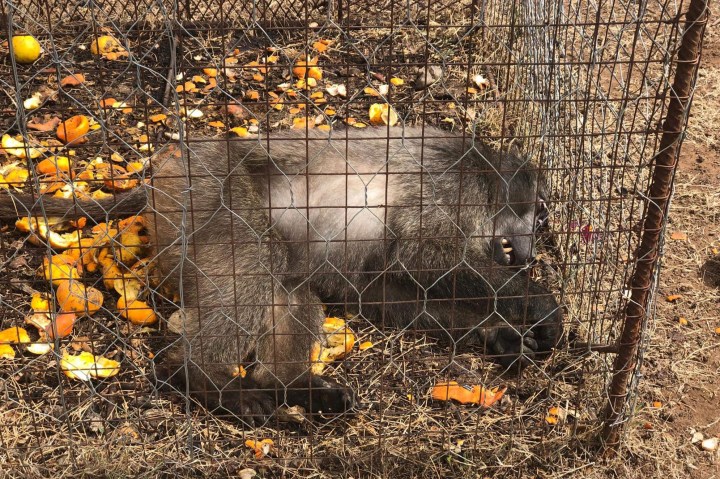
It’s not the job of courts to censor critical or impolite opinions and commentary, says the Supreme Court of Appeal.
In a hard-hitting judgment, the Supreme Court of Appeal has overturned a High Court interdict obtained by an Eastern Cape farmer after photos of traps containing dead animals on his farm and highly critical comments were posted on Facebook by a prominent animal rights activist.
Public debate does not require politeness and courts should not act as censors to determine how people can best express their opinions, the SCA stated in its judgment handed down last week.
According to the summary of evidence in the judgment, the case centred on an incident in September 2019 when a group of cyclists were taking part in an adventure ride in the Eastern Cape. As they were crossing the farm Varsfontein near Alicedale, one of the cyclists – well-known Cape Town endurance athlete Nic Louw – noticed a dead baboon in a cage and a dead porcupine in a second cage. The cages were without shade or water, although there were some oranges near the baboon. To Louw, it appeared that the animals had died as a result of dehydration while trapped in the cages.
“Incensed,” he took photographs of the cages and sent these images to Bool Smuts, a conservationist and animal rights activist and founder-director of the Landmark Leopard and Predator Project (shortened as “Landmark Leopard”). Smuts promptly contacted the farm owner, Herman Botha, who told him that he had valid permits to hunt, capture and/or kill baboons, porcupines and other “vermin”.
On 9 October 2019, Smuts posted Louw’s photos on Landmark Leopard’s Facebook page, and on his own Facebook page posted a Google search location of Botha’s insurance brokerage business, his home address and telephone numbers, as well as a WhatsApp exchange between them. He also posted a photo of Botha holding his six-month-old daughter, although he later removed this image.
Smuts captioned his post: “While we spend our efforts trying to promote ecologically acceptable practices on livestock farms to promote ecological integrity and regeneration, we are inundated by reports of contrarian practices that are unethical, barbaric and utterly ruinous to biodiversity…
“This is utterly vile. It is ecologically ruinous. Mr Botha claims to have permits to do this… The images show a trap to capture baboons (they climb through the drum to get access to the oranges – often poisoned – and then cannot get out). See the porcupine in traps too. Utterly unethical, cruel and barbaric.”
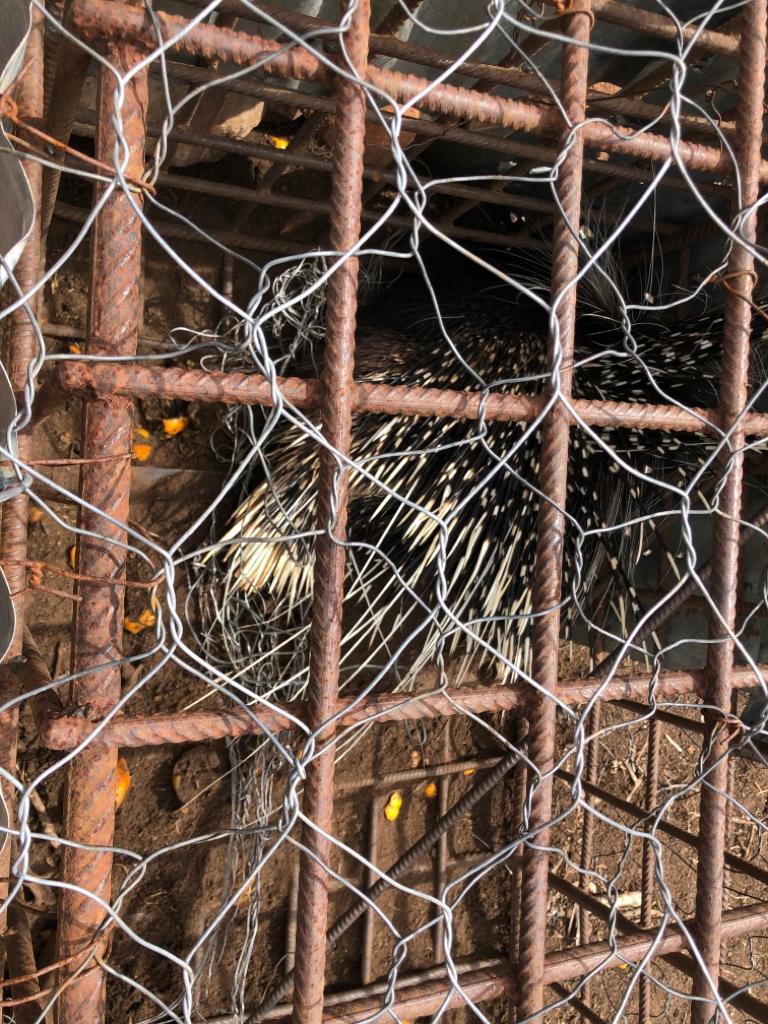
Cages containing a dead baboon and a dead porcupine photographed by a cyclist in 2019 on an Eastern Cape farm belonging to Herman Botha. These images and accompanying critical commentary were posted on Facebook by prominent animal rights activist Bool Smuts, who was then sued by Botha for invading his privacy. (Photo: Nic Louw)
Smuts’s post generated many responses, most of them critical of Botha and of the practice of animal trapping, and some of which were “slanderous and insulting”. One person suggested that “he [Botha] should be in that cage” and another wrote that Botha should be “paid a visit”. There were also suggestions that Botha’s business should be boycotted and a campaign launched to “name and shame” him and his business.
Botha filed an urgent application in the Eastern Cape High Court in Gqeberha and won an interim interdict prohibiting Smuts and Landmark Leopard from publishing defamatory statements about him. The two respondents were also ordered to remove photographs of Botha and some of the information relating to Botha, his business and its location, and the name of his farm from their posts.
The interdict was subsequently finalised, with the High Court judge confirming that while Smuts and the Landmark Leopard had been entitled to publish the photographs and to comment on them, they were not allowed to publish the fact that images had been taken on Botha’s farm. The name of the farm and Botha’s identity as owner constituted personal information protected by his right to privacy, the High Court ruled. Taking the view that the public interest lay in the topic and not in Botha’s private information, the court concluded that Smuts and Landmark Leopard had unlawfully linked Botha to animal trapping, and it confirmed the interdict with costs.
Smuts appealed the interdict, and his appeal was heard in November 2021 by a five-judge panel consisting of Justices of Appeal Dumisani Zondi, Clive Plasket, Rammaka Mathopo and Yvonne Mbatha, and Acting Justice of Appeal David Unterhalter. The judgment, handed down on 10 January, was written by Justice Mathopo who was last month appointed to the Constitutional Court by President Cyril Ramaphosa, with the other four judges concurring.
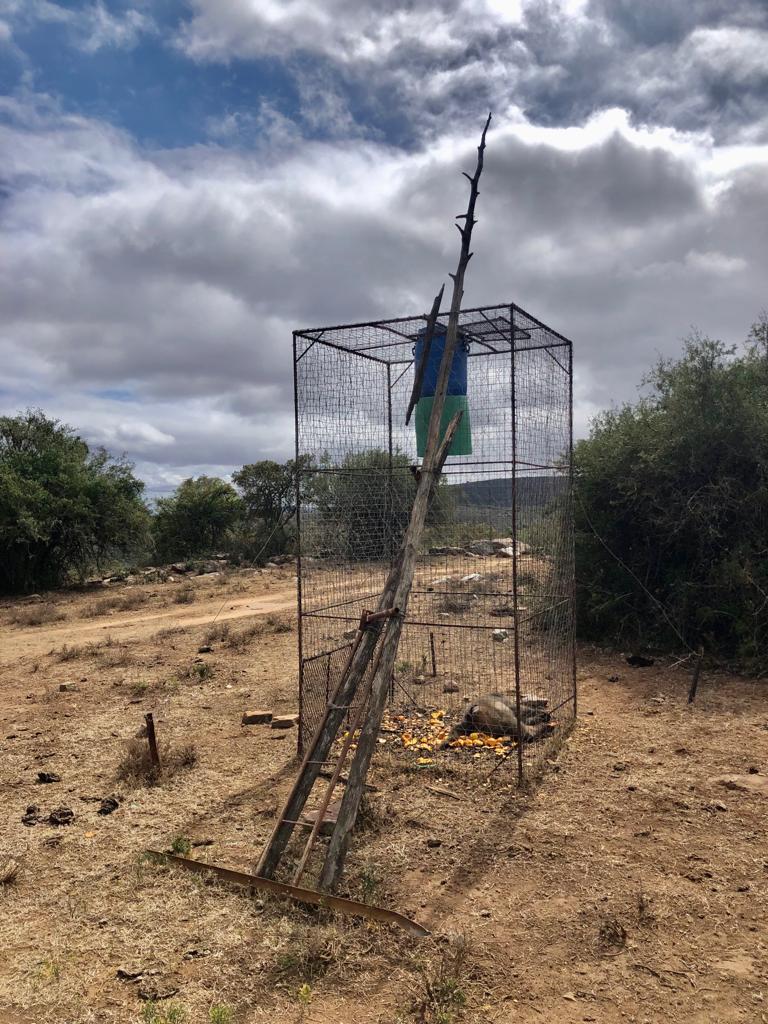
Cages containing a dead baboon and a dead porcupine photographed by a cyclist in 2019 on an Eastern Cape farm belonging to Herman Botha. These images and accompanying critical commentary were posted on Facebook by prominent animal rights activist Bool Smuts, who was then sued by Botha for invading his privacy. (Photo: Nic Louw)
The judgment noted that the heart of the appeal was whether Smuts’s publication of the Facebook posts was protected by his right to freedom of expression. “In essence, what is implicated in this appeal is the tension between the right to privacy and the right to freedom of expression. This calls for a delicate balance to be drawn between these two important, competing rights,” it stated.
The right to privacy was a fundamental right protected by the Constitution, but as a person moved into the “world of communal, business and social interaction”, the scope for the exercise of this right was reduced, the judgment continued. “The right to privacy is not sacrosanct, it must be balanced with the rights of other citizens.”
It pointed out that the Constitutional Court had previously found that freedom of expression lay at the heart of a democracy, and quoted from this case: “The Constitution recognises that individuals in our society need to be able to hear, form and express opinions and views freely on a wide range of matters.”
The appeal judgment noted that Smuts had stated in his defence that he had not intended to defame or harm Botha in his Facebook post, but had rather wanted to publicise, or “out”, his animal trapping practices “so as to stimulate the debate on this thorny and controversial issue”. Smuts had argued that his remarks in his post constituted protected or fair comment on the issue of animal trapping that he considered “cruel, barbaric, vile and utterly ruinous to biodiversity”.
Botha had in turn argued that Smuts’s post was inflammatory and had suggested that he [Botha] had been acting unlawfully. Smuts had infringed on his right to privacy by disclosing his identity, family, home address and business address. Smuts’s comments had been intended to undermine his reputation, status, good name, cause harm to his business and endanger his family.
The appeal judgment found that while Botha had undoubtedly believed some of the posts “offended his expectation of privacy”, in this case he had allowed his own identity and that of his farm to be placed in the public domain. He had openly admitted his use of animal traps and he had not made any effort to keep this information or his activities private. His discomfort at Smuts’s criticism could not now transform what he had already made public, into private information. “The commercial farming activities of Mr Botha and the practices used by him to carry out these activities carry a very modest expectation of privacy from the perspective of what society would consider reasonable.”
The purpose of the public debate was to say things that others found “different and difficult”, the judgment explained. “Public debate does not require politeness. What Mr Botha seeks to do is to unjustifiably limit Mr Smuts’s right to freedom of expression and his entitlement to make a fair comment on the facts that are true and related to matters of public interest…
“In my view, the right to freedom of expression in section 16 of the Bill of Rights protects every citizen to express himself or herself and to receive information and ideas. The same right is accorded to activists to disseminate information to the public. The Constitution recognises that individuals in our society need to be able to hear, form and express opinions freely, on a wide range of topics. Honest information and publication of animal trappings is no exception. Mr Smuts had a right to expose what he considered to be the cruel and inhumane treatment of animals at Mr Botha’s farm.
“This was a fair comment and the public interest is best served by publicising the truth rather than oppressing [sic] it. The public has a right to be informed of the humane or inhumane treatment of animals at Mr Botha’s farm. Members of the public have the freedom to decide which commercial enterprise they support and which they do not.
“That freedom of choice can only be exercised if activities happening at Mr Botha’s farm are laid bare for the public.”
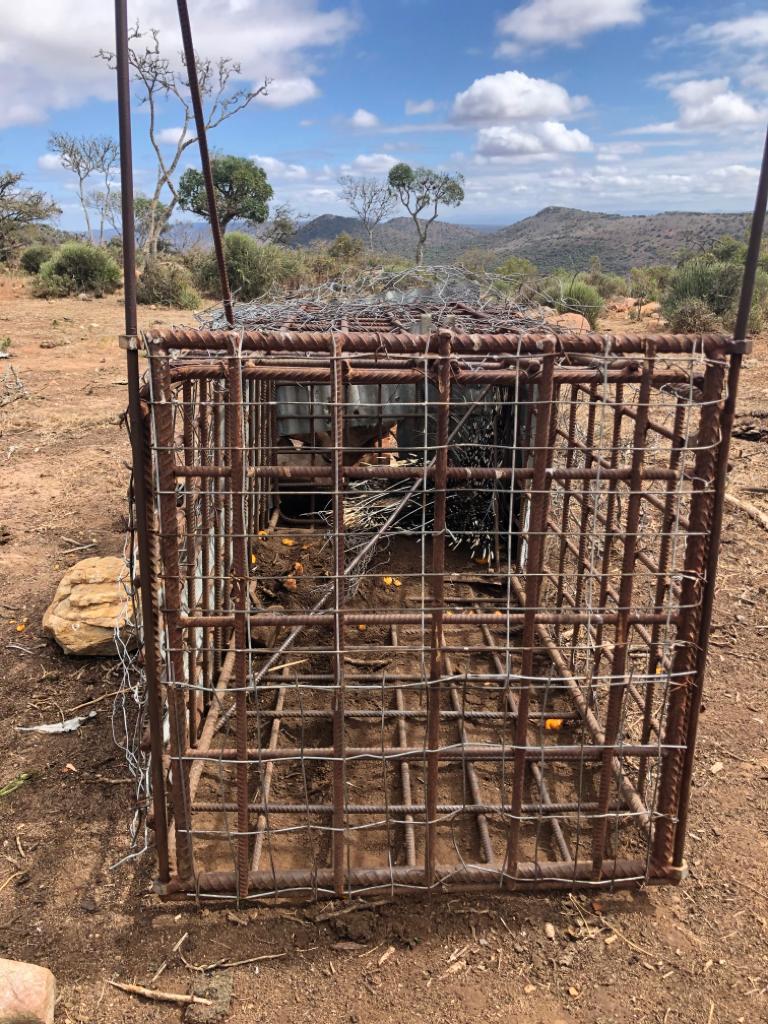
Cages containing a dead baboon and a dead porcupine photographed by a cyclist in 2019 on an Eastern Cape farm belonging to Herman Botha. These images and accompanying critical commentary were posted on Facebook by prominent animal rights activist Bool Smuts, who was then sued by Botha for invading his privacy. (Photo: Nic Louw)
The High Court had erred by asking whether Smuts could have exercised his right to freedom of expression with greater restraint so as to afford Mr Botha’s right to privacy greater protection, the appeal judgment stated. “That is not the correct way to look at the matter. A court should not act as a censor to determine how best persons might speak. In this case, Mr Smuts enjoyed the right to air his views as to animal cruelty and attribute to Mr Botha the practice of trapping. After all, that information was true, never denied by Mr Botha, not hidden by him. In these circumstances, the test is not whether Mr Smuts could have posted more cautiously, the question is whether Mr Botha had any claim to privacy in respect of the information posted. His claim… was weak.
“… Essentially what Mr Smuts did was to give further publicity to information about Mr Botha that was already in the public domain. That said, there was no basis for the interdict against Mr Smuts. [His] appeal must be upheld.”
The appeal was upheld with costs, and the order of the Eastern Cape High Court was set aside and replaced. DM/OBP
* Disclosure: John Yeld and Nic Louw are personal friends.










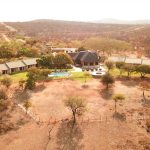
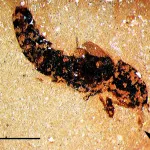








 Become an Insider
Become an Insider
Comments - Please login in order to comment.